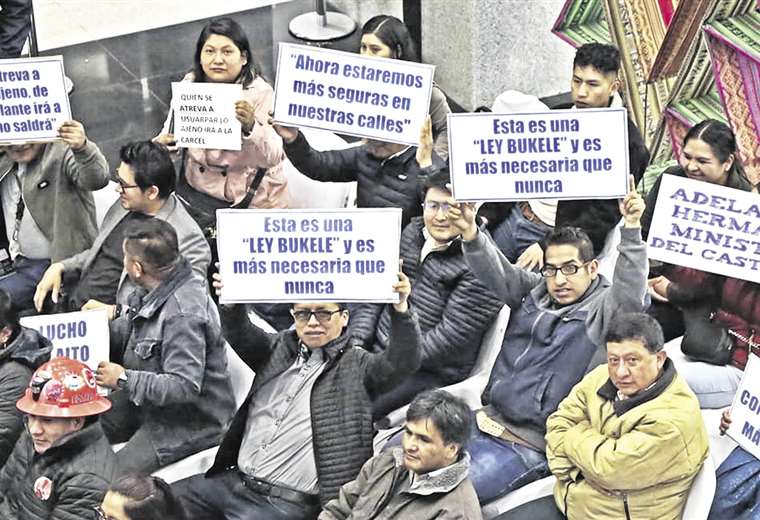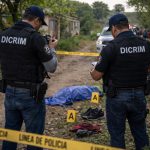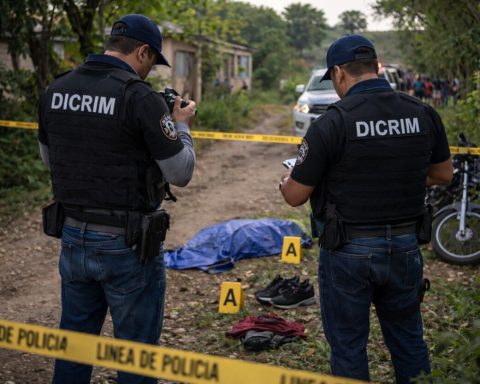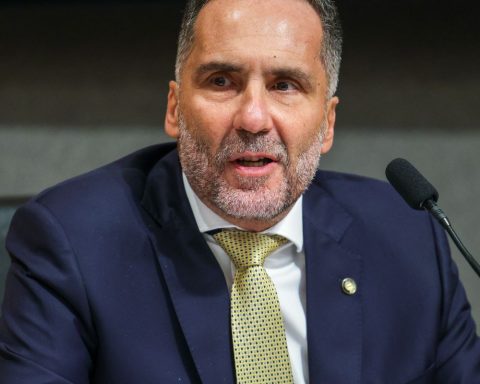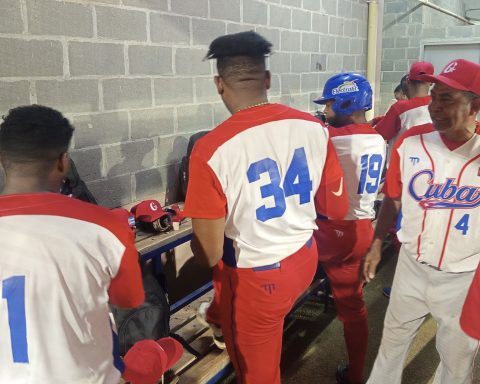“This is a ‘Bukele law’ more necessary than ever.” The text was part of one of the posters that followers of the Government Minister, Eduardo Del Castillo, exhibited in the Casa Grande del Pueblo during the presentation of the regulatory project ‘What is foreign is not touched’ – as the initiative was formally baptized – which proposes toughening penalties for flagrante delicto robberies and trying criminals without prior charges.
For specialists in constitutional law and former prosecutors, the proposal does not take into account the constitutional guarantees of legitimate defense or a reform to the country’s penal policy, associated with justice reformnor the infrastructure of the country’s penitentiary regime, which should be aimed at the rehabilitation of citizens who have been punished for crimes of flagrante delicto robbery.
Del Castillo justified this proposal, which adjusts the Penal Code and procedure for the trial of these cases.
During his presentation, the head of Government explained that this type of criminal offense was created for ‘those who illegitimately seize, take over, steal or take jewelry, money, securities, minerals or energy, thing, whether or not subject to registration, through carelessness, violence, intimidation, use of weapons and other means; or in any other way appropriates someone else’s property and is found or found in flagrante delicto by the Police or by individuals, or is fully identified at the time of the commission of the crime through recordings, images, witnesses and police interviews, will be punished with a penalty. of seven years’ imprisonment without the right to pardon.’
The draft states that in its article 322 of the Penal Code, the police officer assigned to the case will prepare a report on all the elements collected and linked to the incident, in this case robberyeither. Then, it will recommend the application of the “Special summary procedure for the crime of flagrant seizure of another’s property” where it will issue the formal accusation and the request for preventive detention, attaching the background information and seized objects.
The second step is that once the prosecutor of the Public Ministry receives these reports from the police, he will have a period of 24 hours to issue the formal accusation, skipping the imputation of the crime, and will request the judge of the case to apply the summary procedure as the precautionary measure of preventive detention against the offender.
Something that was observed in the transitional provisions is that a period of 15 days is given, computable from the publication of the Law, both the Judicial Branch and the Ministry Public must issue internal regulations for the application of the special summary procedure for the crime of flagrant seizure of another’s property.
In this regard, the former prosecutor and coordinator of the fight against drugs, Joadel Bravo, explained that constitutional law is intrigued with criminal law, from where constitutional guarantees arise such as due process for the accused, according to article 115 of the Political Constitution of the State (CPE), in addition to the right to defense.
He pointed out that the law “Do not touch what belongs to others” violates the treaties and international conventions on the rights that are signed by Bolivia, where the Bolivian Constitution itself indicates that such agreements are above the precept.
“If you remove the investigative part of the crime of robbery, the right to defense and due process are violated. This is a direct affront against legal regulations and impossible for Bolivia to step aside because it has international agreements,” he stated in an interview with EL DEBER.
The jurist cited the case of the Las Américas hotel, where the Victims went to the Inter-American Court of Human Rights (IACHR).
He described it as “very serious” for the Ministry of Government not to know these principles of rights., something he considers basic. He argued that this type of proposals for changes correspond clearly to the Judicial Branch and not to the Executive.
For his part, Jaime Soliz, former District Attorney of Santa Cruz, believed that the Government should promote public works to stimulate employment among young people.
“They think that the solution is jail for petty crimes. The big robberies remained unpunished Are we going to punish a population more“To young people, when should they be given the opportunity?” he added.
He considered that the criminal policies of the State and the departmental Citizen Security Council should be activated.
While the Ombudsman, Pedro Callizaya, listed at least four considerations that are prevailing for the validity of human rights. and of a democratic state, when 70% of prisoners are under preventive detention.
“Respect for human beings for the construction of a just criminal policy; system impartial judicial; prison regime that rrehabilitation and reparation of victims,” he considered.
The former president, Eduardo Rodríguez Veltzé, said that in the country there is a need for “a judicial system“with prosecutors and judges who guarantee due process, impartial and timely.”
“Without victim reparation mechanisms, the problem will not be resolved either.”to the crime described by the minister”, said the former state dignitary.
